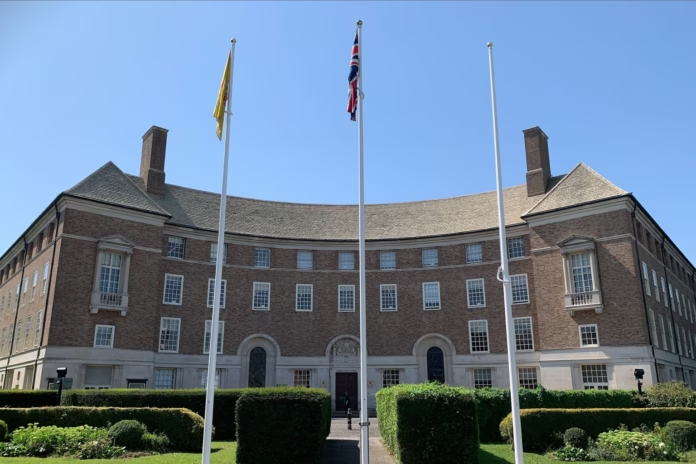Setting up an independent investment advisory panel at Warrington Council will be “new in local government” and cost in the region of £100,000+ per year, with consultancy fees on top.
The authority’s Cabinet will also be told in a meeting next week (8 July) that the availability of people with the required and relevant expertise to sit on the panel is a “concern”.
An action plan has been created at Warrington to implement the recommendations of a Department for Levelling Up, Housing and Communities (DLUHC) report published in May into the council’s capital risk.
DLUHC’s report was based on a CIPFA assurance review into the council, which stated that Warrington’s £1.8bn debt position is “concerning” and is putting the authority at “risk”.
The council also recently saw its credit rating with ratings agency Moody’s withdrawn because of a “lack of sufficient, current audited financial information caused by an audit backlog”. Warrington is seeking to secure an alternative rating from another EU-recognised ratings agency.

Warrington’s action plan has now been considered by the council’s Audit & Corporate Governance Committee, with an updated version to be reviewed by Cabinet next week.
The action plan notes DLUHC’s recommendation that the independent investment advisory panel might be in place for an initial term of 24 months, with the option to renew. It would provide “expertise” for the council and “assist [Warrington] in managing its complex portfolio”.
A report providing an update on the action plan states that setting up the panel will be the “most challenging” of DLUHC’s proposals to implement, and notes that while such bodies are new in local government “they do exist in the commercial sector and are increasing in their popularity”.
The report proposes taking a “proactive approach with this recommendation”, starting with drawing up terms of reference to be agreed with DLUHC and determining how this integrates with Warrington’s governance processes. The next step would then be sourcing CVs of “suitably skilled individuals” to sit on the panel.
The Audit & Corporate Governance Committee raised concerns, though, that draft terms have still not been agreed by the government department.
The report describes a current “communication vacuum” between DLUHC and Warrington “with DLUHC calling bespoke meetings at short notice without any resolution taking place”.
It is therefore “vital” that “clear lines of open book communication are put in place between the council and DLUHC”, the report states, with “regular diaried meetings” taking place to “discuss progress and discuss wider policy issues such as future borrowing for the capital programme”.
The report recommends that section 151 officers contact DLUHC to discuss setting up a formal communications strategy.
Debt and borrowing
Warrington’s action plan also addresses other DLUHC recommendations, including one to provide a detailed schedule of planned borrowing for the foreseeable future.
The update states that a schedule has been sent to DLUHC, which was completed by December 2023 and will be updated quarterly in line with the council’s budget monitoring framework.
The DLUHC report was also critical that the council has few exit strategies in place. To address this, officers have proposed that exit strategies are developed by all the commercial groups and monitored and reported on an ongoing basis including quarterly reporting to cabinet.
A seven-to-ten-year period is given in the report for the council to reduce its debt levels and exit strategies “are not rigid but flexible particularly in relation to property”, the update report notes.
DLUHC also recommended developing a plan to reduce debt levels. The update report states that it is “vital that the council develop this in consultation with DLUHC due to the complexities involved and the income these schemes produce for the MTFP”.
Repayment of the loan portfolio was described as “simplistic” but selling the council’s property investment portfolio is “more challenging”. The section 151 officer “will be responsible for this and report on an ongoing basis,” the report adds.
In the report to Cabinet, the Audit & Corporate Governance Committee was described as “generally supporting the items contained within the action plan”. Members considered it important that if a panel was established, however, it should be forward looking rather than focusing on retrospective activity.
As noted, the audit committee also raised concerns over finding relevant panel members and the costs involved. DLUHC’s recommendation states that “financial skills of the sort found among people with senior Treasury, Bank of England or City experience, or with backgrounds in commercial contracts, e.g., those with practical contract experience, will be useful here, supported by local government finance professionals”.
The committee also requested a further report to both Cabinet and Audit & Corporate Governance Committee following agreement of the draft terms of reference with DLUHC. In addition, the committee’s work programme would be updated to add a quarterly update on progress of the entire action plan, following its consideration and potential adoption by Cabinet.
—————
FREE bi-weekly newsletters
Subscribe to Room151 Newsletters
Follow us on LinkedIn
Follow us here
Monthly Online Treasury Briefing
Sign up here with a .gov.uk email address
Room151 Webinars
Visit the Room151 channel














